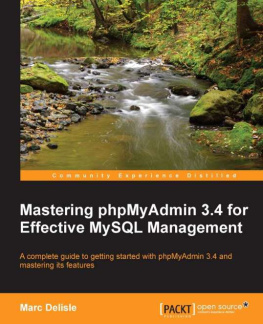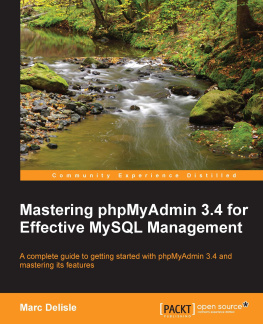SETTLER AND MAORI
IN
NORTHERN NEW ZEALAND.
BY
WILLIAM DELISLE HAY,
AUTHOR OF "THREE HUNDRED YEARS HENCE," "THE DOOM OF THE GREAT CITY," ETC.
"Queen of the seas, enlarge thyself!
Send thou thy swarms abroad!
For in the years to come,
Where'er thy progeny,
Thy language and thy spirit shall be found,
If
in that Austral world long sought,
The many-isled Pacific,
When islands shall have grown, and cities risen
In cocoa-groves embower'd;
Where'er thy language lives.
By whatsoever name the land be call'd,
That land is English Still."
Southey.
IN TWO VOLUMES. Vol. I.
LONDON:
RICHARD BENTLEY AND SON,
NEW BURLINGTON STREET.
1882.
(All rights reserved.)
PRINTED BY WILLIAM CLOWES AND SONS, LIMITED, LONDON AND BECCELES.
PREFACE.
This book is descriptive of things as they are in a part of New Zealand, together with some reference to past history. It does not attempt to handle the colony as a whole, but refers to scenes within the northern half of the North Island only. This part of the country, the natural home of the kauri pine, is what I here intend to specify under the title of Northern New Zealand.
I am not an emigration-tout, a land-salesman, or a tourist. When I went to New Zealand I went there as an emigrant. Not until a few days before I left its shores had I any other idea but that the rest of my life was destined to be that of a colonist, and that New Zealand was my fixed and permanent home. I have, therefore, written from the point of view of a settler. Circumstances, which have nothing to do with this chronicle, caused me to lay down axe and spade, and eventually to become a spoiler of paper instead of a bushman. The materials of this work, gathered together in the previous condition of life, are now put in print in the other.
I trust no one of my colonial friends will feel offended, should he think that he discovers a caricature of himself in these pages. I have used disguises to veil real identities, occasionally taking liberties as regards time, situation, and personality. I think that no one but themselves could recognize my characters.
The substance of one or two chapters of this book has, in part, been already placed before the public in papers that I contributed to The Field last year, and is used again here by kind permission of the proprietor of that newspaper. Also, I have made the Kaipara the scene of several tales and sketches, which have appeared in sundry periodicals.
If, in writing this book, I had any object beyond that of amusing the reader, it has been to give accurate information to young Englishmen belonging to the middle-classes. From this section of home society a considerable number of emigrants go out who had much better stop at home. On the other hand, there are many who do not stir, and who would be much better off in a colony. Perhaps, from the record I am now able to put before them, some of these young gentlemen will be more able to decide whether they are personally adapted to become colonists in Northern New Zealand or not. If one unsuitable emigrant is hereby deterred from leaving home, and if one capable colonist is added to the population of "Brighter Britain," my labour will not have been altogether useless.
For the rest, I throw myself again upon the indulgence of critics, and on that of a public which has already abundantly favoured the efforts I have made to please and serve it.
THE AUTHOR.
London ,
June 25th, 1882.
CONTENTS OF VOL. I.
| I. | A "New-Chum's" Introduction |
| II. | Auckland |
| III. | Going Up Country |
| IV. | In The Kaipara |
| V. | Our Shanty |
| VI. | Our Home-Life |
| VII. | Our Pioneer Farm. I. |
| VIII. | Our Pioneer Farm. II. |
| IX. | Our Show-Place |
| X. | Our Native Neighbours |
| XI. | Our Settler Friends |
| XII. | A Pig-Hunt |
CHAPTER I.
A "NEW-CHUM'S" INTRODUCTION.
Three months on board ship seems a long while to look forward to, yet it is but a short time to look back upon. Emigrants, being for the most part drawn from among dry-land-living populations, are apt to be daunted by the idea of a long voyage. People would be more ready, perhaps, to contemplate becoming colonists, were it not for that dreaded crossing of the sea which must necessarily be their first step. Their terrors may be natural enough, but they are more fanciful than real; and once overcome, the emigrant smiles at his former self.
After the first week or two at sea, the most inveterate "land-lubber" begins to feel at home; in another week or two he has become quite nautical, and imagines himself to have been a sailor half his life; while, when the voyage is over and the time come to go ashore, there are few who leave their floating home without regret.
As things are managed nowadays, there exists no reason for apprehension of the voyage on the part of would-be colonists. Emigrants who are taken out "free"that is, at the expense of the colonial governmentas well as those who pay their own passage, are cared for in most liberal and considerate style. The rivalry between the various colonies of Australia has had this effect among othersthat the voyage is made as safe, smooth, and inviting to emigrants as is possible. They are berthed with an ever-increasing attention to their care and comfort, while they are absolutely pampered and fattened with abundance and variety of the best food.
No one expects to commence life in a new country without undergoing some amount of hardship and difficulty, and when the emigrant gets on shore, and begins to experience the various little annoyances that a "new-chum" must necessarily undergo, he realizes most thoroughly the pleasures and comforts he has left behind him on board ship; and, very frequently, vainly endeavours to suppress the wish that he was back on board "the old hooker" making the voyage out over again.
As to danger, nothing amuses an old salt more than the bare idea of the "perils of the sea." To him, a railway journey, short or long, appears an infinitely more terrible and risky undertaking than a voyage half round the globe; and he will enumerate the various dangers to which a landsman is exposed as vastly in excess of those which may happen to the mariner.
Life on board an emigrant-ship would, it might be thought, be somewhat dull and monotonous. As a matter of fact, it is scarcely ever found to be so. First of all, the little community of two or three hundred soulsmen, women, and childrencontrives to find sufficient fund for amusement in itself, in all the varieties of social intercourse.
The progress of each day is marked by some fresh events that, insignificant as they may seem when regarded from a distance, do yet bear the strongest interest to all on board. A glimpse at some distant land, the signalling or speaking of other vessels, the appearance of strange birds and fish, the passage into different climates, the excitement of a storm, or the opportunity which a calm gives for general junketing; all such incidents are looked upon as a real gain by the voyagers, while there is always something stirring on board to divert and enliven them.












